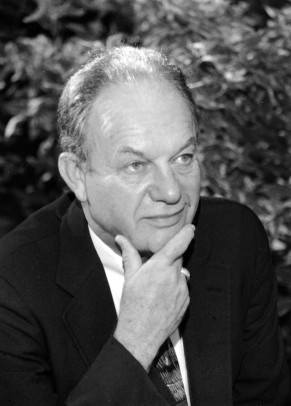Finding answers for 50 years

Richard Warnecke, emeritus professor of the Institute for Health Research and Policy, is among presenters at the March symposium.
UIC’s Survey Research Laboratory has been getting answers for 50 years — designing, conducting, and analyzing surveys for academic, government and other public-interest entities.
Much of its work has moved to the Internet, but sometimes the old ways are still the best, said director Tim Johnson.
In-person interviews, he said, “tend to produce the most reliable and representative information.”
“We’re working on two large community-based health surveys — one for UI Health and the other for Mount Sinai Hospital — that employ area probability samples and face-to-face interviewing throughout the city, ” Johnson said.
The Survey Research Laboratory will mark its half-century of service with a March 6 symposium at UIC and a March 4 event on the Urbana-Champaign campus. Both events are free and open to the public.
The UIC symposium will be held from 2 to 4 p.m. in Meeting Room BC, Student Services Building.
Presentations will include:
• “Fifty Years Serving the University of Illinois,” Richard Warnecke, emeritus professor of the Institute for Health Research and Policy. Warnecke has been involved in cancer control research for more than 40 years and has been a principal investigator and grant reviewer with the National Cancer Institute. He became affiliated with the Survey Research Laboratory in 1974 and served as director from 1981 to 1996.
• “Thinking about Answers: Looking Back and Ahead,” Norbert Schwarz, provost professor of psychology and Marshall School of Business at the University of Southern California. Schwartz, co-founder of the USC Dornsife Mind & Society Center, studies human judgment and cognition and their implications for public opinion and consumer behavior. He is a member of the American Academy of Arts and Sciences and the German National Academy of Science.
• “The Future of Survey Research,” Jon Krosnick, professor of communication, political science and psychology at Stanford University, and research psychologist at the U.S. Census Bureau. Krosnick studies how the American public’s political attitudes change and express themselves in action. His surveys have been used in court cases involving employment law, patent/trademark violation, health effects of accidents, and evaluation of environmental damage.
